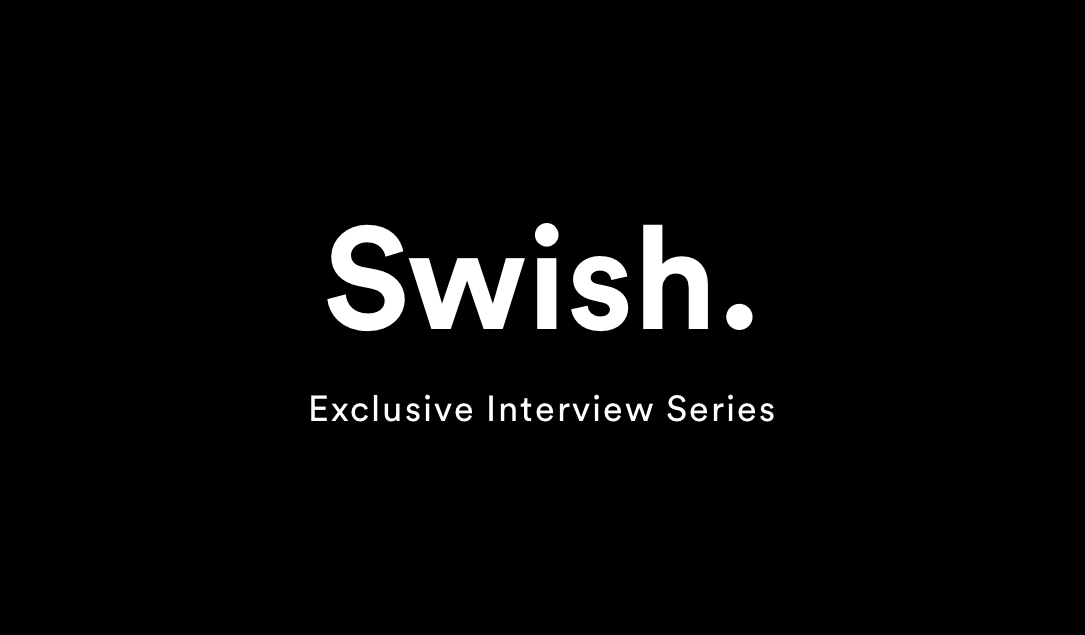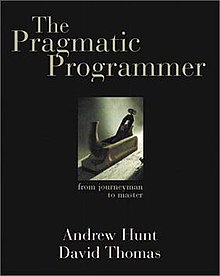Checkout 51 Interview: Andrew McGrath, Founder & CTO

Jon Carr-Harris
almost 12 years ago


Checkout 51 is a mobile couponing app designed to help find deals, without the hassles involved in paper couponing. For brands, it’s an excellent way to acquire new customers, and reward existing ones. For customers, it’s a chance to try new products they may never have heard of otherwise.

We sat down to speak with CTO of Checkout 51, Andrew McGrath, who shared with us his thoughts on startups, mobile development and effective hiring practices. He also unintentionally gave us a first-hand look at the frenzied, intense life of a startup CTO.
Our Google Hangout conversation followed Andrew through a dentist appointment, a couple of taxi rides, and a quick stop at the office. Andrew wore a smile through it all.
“This is my life,” Andrew laughs. “It’s like… in a taxi, out of a taxi, talking to someone, not talking to someone, not getting any real work done.”
Of course, Andrew gets plenty of real work done. Checkout 51’s disciplined, iterative, and metrics-based approach to development has brought the Canadian startup from a minimalistic private beta composed of spreadsheets and emails, to full-fledged native iOS and Android apps with over a million users in just a couple of years.
Today, Checkout 51 is a well-funded startup that has over 40 employees and an office in the heart of downtown Toronto. But at its beginnings, it was nothing more than an idea born from a data conference, followed by a few good stumbles.
Some Good Stumbles
 (L-R) Checkout 51 co-founders Andrew, Noah and Pema.
(L-R) Checkout 51 co-founders Andrew, Noah and Pema.
Where did the idea for Checkout 51 come from?
I met Pema and Noah (both co-founders) through Extreme Startups. They were definitely looking to start something, they had recently gone to a big data conference and we were talking about some of the themes that came out of that conference. One was the idea that data is abundant but undervalued.
We thought that receipts were among the most abundant and undervalued things out there. Everyone gets them, puts them in their coat pocket and just forgets about them. So we decided to start a business which would collect receipts and stumbled our way into this.
Stumbled pretty well.
Yes, good stumbles!
What did you have to work with when you started?
We had (and have) three founders of three distinctly different skillsets. I think a diverse set of skills is probably one of the most important things to have in a founding team. You’ve got me on the tech side. Then you’ve got Pema who is very good at product and sales and marketing in general. And then there’s Noah who has a strong understanding of the accounting system, legal, and is also our financing guru.
So Pema can conceptualize it, Noah can get it funded, and I can implement it.
So that’s roughly the journey you guys took?
Well, when I actually think about how this company started… I mean, we sat together in a coffee shop and talked about how we could design the cheapest experiment possible to get a company going. So me being the tech guy, I obviously wanted to build something right away.
But Noah & Pema, being way more intelligent than me, didn’t want to build anything right away. They wanted to test first.
So how did you test the idea?
What we did was to set up a splash page with a MailChimp mailing list, and send that to a blogger in Toronto who was willing to write about what we were planning on doing. We said that the first four hundred people who sign up would be part of our beta. We ended up with a thousand, so we said we’d stop there.
For the next four-eight weeks we just watched what happened. People signed up, we sent them a list of offers in a PDF file. We looked at how many people opened the email and we said: “Take a picture of your receipts and email it to us.”
Then we tracked everything in Excel. At the end of it, we were able to determine what our metrics should be. We knew how many people opened their email and knew how many people opened emailed and submitted a receipt. We knew how many claims per receipt they made and from that we could extrapolate quite well.
That’s where Noah’s financing knowledge came in?
Yes. With a thousand members, it becomes very easy to go, “assuming a million members, if we’re making this much fee, and this much of a redemption…” and so on.
It’s very easy to tell a story that allows a Venture Capitalist to say, “Hey, this is a good business right away! Here are their numbers.”
That’s why, for the first 18 weeks, we didn’t write a single line of code. We just watched that email list and decided whether or not we’d actually build something. Since then we've been deploying new code several times per week.
When we finally did start building something, it was only because managing Excel was getting too hard. Too many claims. So we started building the backend of the processing system and then we built the app and things snowballed from there.
Did you run into any obstacles during app development?
Oh yeah. The biggest one would be that I had never build an app or written a line of Objective C! (laughter)
That was by far my biggest challenge. I don’t think Pema and Noah realized how much I didn’t know about mobile apps until we really got started. But the amazing thing is we decided to build a really simple MVP which we used PhoneGap for.
What made you go native on iOS?
PhoneGap turned out not to be for us. It’s a great product, but we wanted more control. So we decided – I think it was one Sunday night – I said to Pema and Noah:
“I think I can build this whole app maybe in about two weeks.” I still hadn’t written a line of Objective C. And they said, “Okay cool, let’s do it.”
Two weeks later we had an app. It wasn’t perfect but I think we put that first version out on December 1st or something in 2012 on the AppStore. Then we refined it a little bit and I think we launched another version for December, I think it was 18th. That was the version we went public with.
Behind The Scenes
Earlier, you mentioned the importance of having the right team. How do you approach adding new members to that team?
We look for people who are practical and smart. We try to hire the smartest people we can, and that means having great judgement. They may not have the perfect skills in the area that we want, but they generally have great judgment and they still make the right decisions.
What happens when you pick the wrong person?
It hasn’t happened a lot. But when it has happened, you know it pretty quick. You just – everyone feels it.
You already know you want to do it before you do it. You probably fight yourself on it for about a week on it. For me, I look back over the work and I ask: are they independent?”
Because the people who are not independent are the most expensive people to have on board. They suck up your time, and they suck up other people’s time. We try to find people who don’t need a lot of guidance, but still manage to accomplish a lot.
We help that along by giving them the context they need to make the right decisions fairly quickly.
How do you provide your employees with context? Is it based on metrics?
Yes. We are very transparent internally about our metrics. Everyone knows exactly what metrics we’re optimizing for. We have boards all over the place with metrics updated every five minutes. We make it clear which metrics matter to which people, and tell our new hires what they should be measuring when they contribute.
We’re an extremely metrics driven company. We follow five key metrics.
Five key metrics? Would you be willing to share?
I can give a general idea. One is how many people open our app. Another is how many people successfully claim an offer each week. The others are around sales. We take all this data and feef it into a formula that gives us a number. If the number looks good, business is awesome and we’re making lots of money.
We’ll go through each metric and ask which one has the biggest opportunity for improvement. Then we’ll focus on that for awhile.
So no gut feel?
The good thing is that there is a gut feel, but we’ve been trying to make sure the metrics align with our guts. So when we feel we are not doing well, the metrics should tell the same story.
Let’s talk mobile. You didn’t have any experience with mobile development before?
No. I’m lucky though because I have a very large network and I’ve been able to find people to give me advice on development and help me out in the beginning.
And how do you develop now?
I develop mostly on iOS, but much of my time is spent making sure that the people on our team are as productive as possible. I find it’s easier to get people who are specialized in something, and then just clear their roadblocks for them.
You have a web app and mobile apps. How does engagement compare between the two?
Our mobile engagement is extremely high, much higher than our web engagement. Interestingly, the purchase habits are very similar though.
Has the app influenced customer behaviour?
Yes, definitely. One example that stands out the most is between two popular soft drink providers. Campaigns that try to get customers to switch from one product to the other have proven effective beyond the promotion. The same thing happens with credit cards.
Where do you want to see mobile development go from here?
Every time I see someone introduce an app that is a minor improvement over something that already exists I get frustrated. You see so many apps that are just repetition and it’s just a waste of talent. It’s really depressing because there are so many other things out there that need our time.
I hope that more people get interested in solving serious problems like doing their taxes, or something medical related.
I see some, like this one blood glucose monitoring services that attach to your iPhone. There is a lot of interesting opportunity out there but not enough people are willing to put their talent to their full potential.
Andrew, thanks for chatting with us! It was a treat.
Oh, no problem at all! Looking forward to reading it.
Life Hacks
Favorite book? The Pragmatic Programmer

Why? It drives a lot of my philosophies. The book focuses on velocity and your ability to move quickly and make scary changes. Thanks to it, I’m able to better explain the stages of a product’s development, and why we need to focus on velocity instead of perfection. It’s also a very small book. If you’re in a startup, time to read is sparse.
Open Concept Office or Closed? A bit of both. I prefer open spaces and working with people, but sometimes, like on this OCR project we did recently, it helps to lock yourself away to get it started.
Favorite Product Experience? The iPhone. It’s like the Rolls Royce of phone in terms of elegance, but it is far more affordable. I can’t believe they pull that off.

Favorite Online Software? I’m amazed by Airbnb for their ability to provide such a potentially conflict-creating service at such low friction. You’re inviting someone else into your house, exchanging money, and meeting them to give them the key… they’ve never even met you before, yet Airbnb makes it such a trusting experience. And at such scale!
/cdn.vox-cdn.com/uploads/chorus_image/image/51885795/https___press.atairbnb.com_app_uploads_2016_11_Airbnb_Fall2016_Press_05_4000x2656.1479407411.jpeg)
Biggest lesson learned? Never run an app without crash tracking.
Special thanks to Christian Borys and Omar Khafagy for helping make this interview happen.